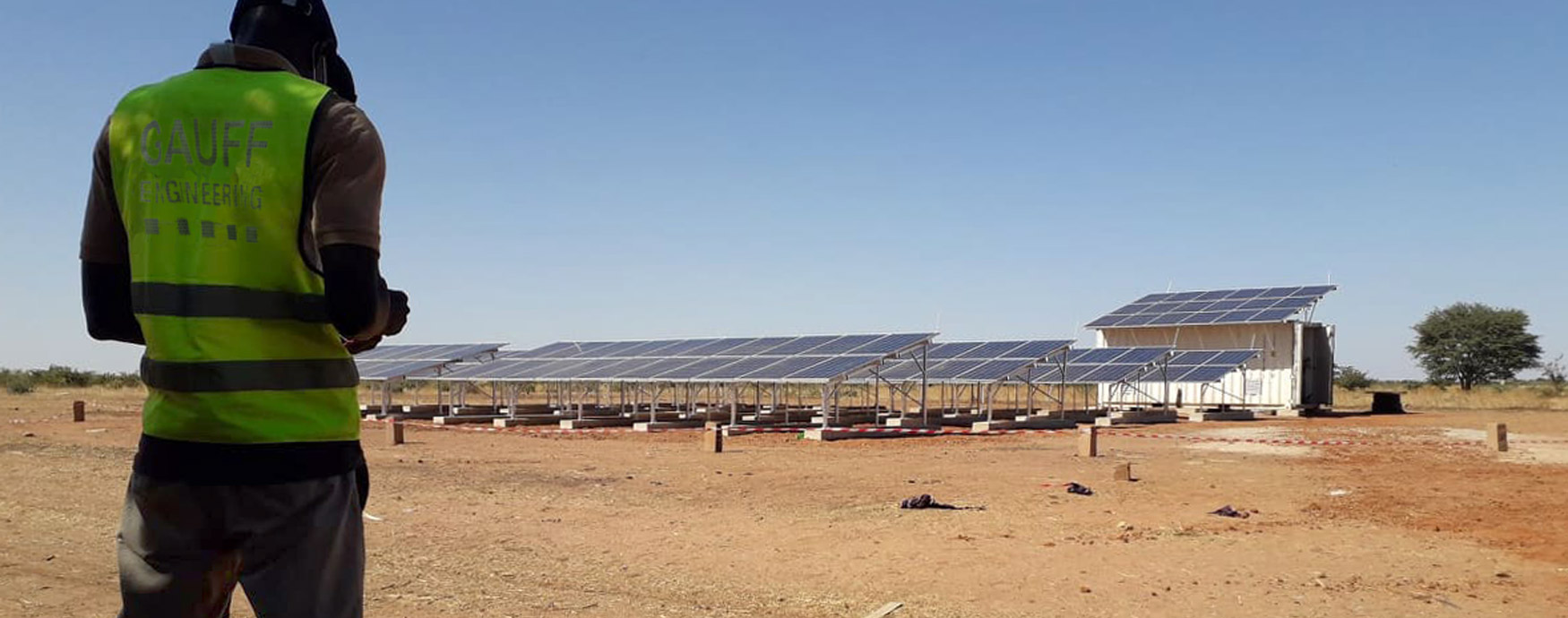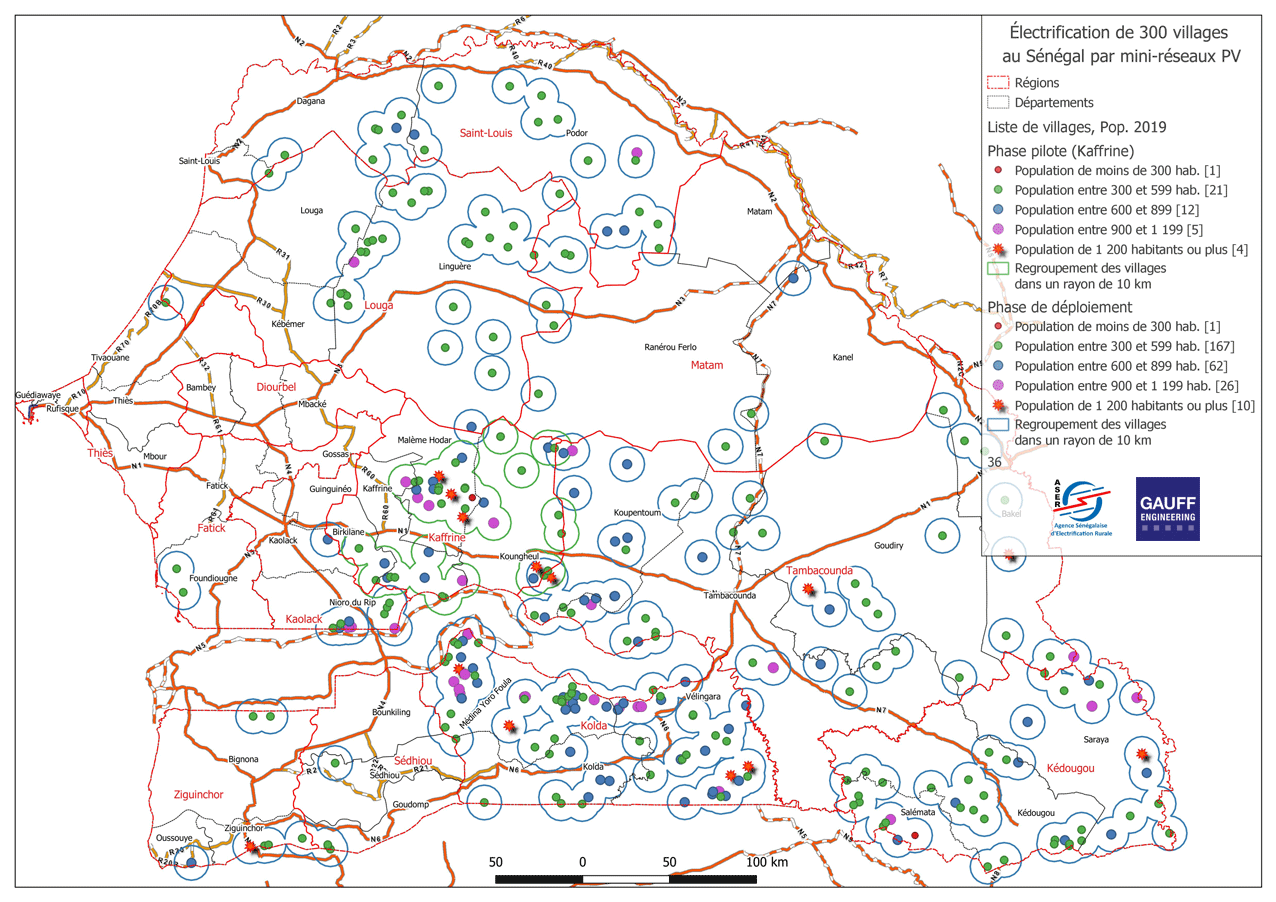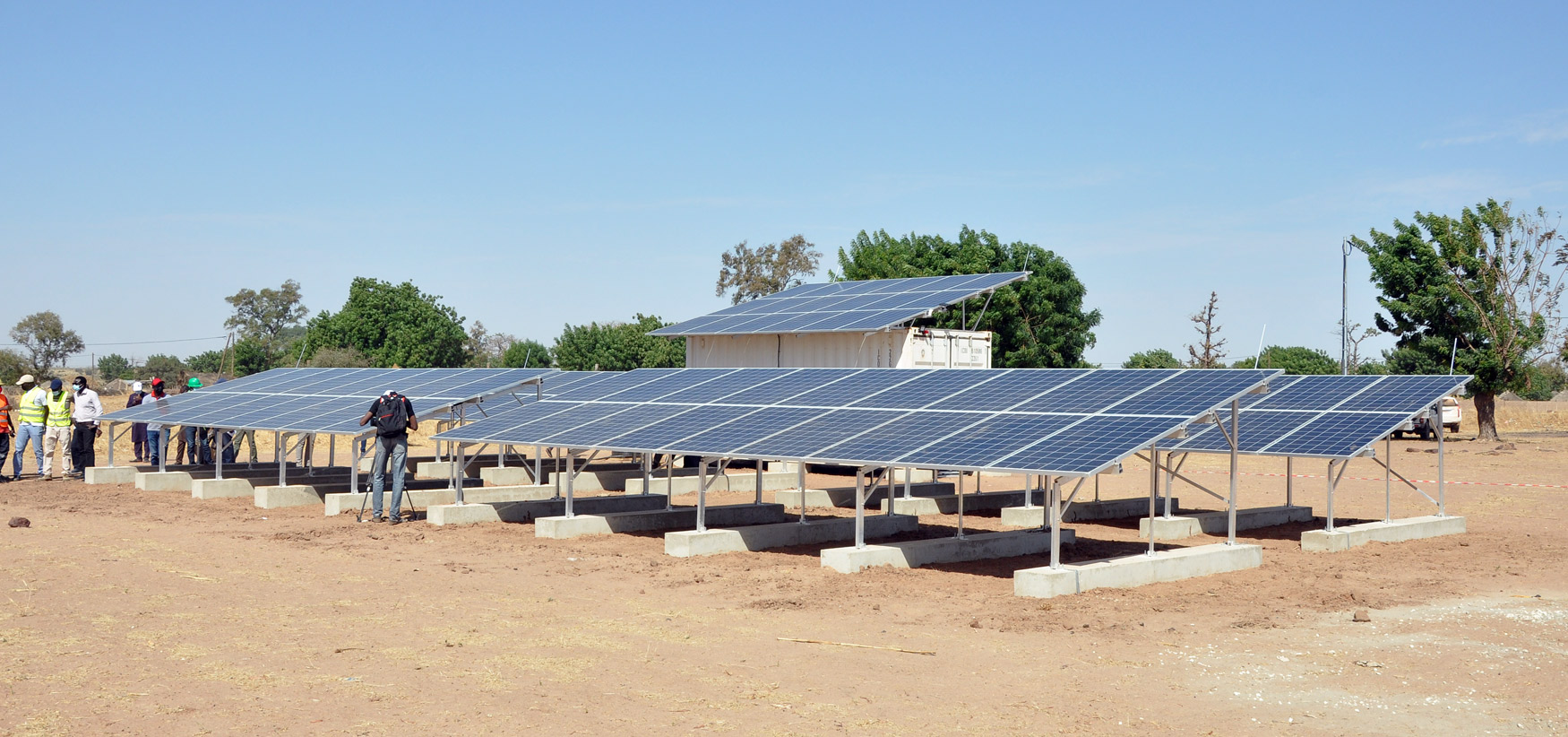
Solar energy for 300 villages in Senegal
Secured with Supplier Credit and Buyer Credit Cover
Many rural regions in Senegal have no access to electricity. Although the sun shines for around 2,500 hours a year in this West African country, electricity from solar energy has only played a minor role to date. The Senegalese Agency for Rural Electrification, ASER, wants to exploit the country's potential and promote electrification with photovoltaics. It is pursuing a very specific goal: to supply remote villages with electricity with the help of self-sufficient solar-powered grids.
For this project, ASER was looking for companies to plan and implement the project. The contract for the electrification of 300 villages was awarded to GAUFF Engineering from Nuremberg, which has already supported and implemented many infrastructure projects in Africa. The goals are ambitious: each village is to receive a 15 to 45 kWp photovoltaic system including battery storage. In addition, there is the construction of distribution networks with a total of around 840 km of laid cables and 25,000 masts. 3.600 LED lanterns will provide lighting for the paths and roads and thus ensure greater safety.
24.000 households will benefit from the project. They will not only be supplied with solar power, but will also receive five sockets and five LED lamps each.

In addition, opportunities for the productive use of energy are to be created. Depending on the region and requirements, the villages will also receive water pumps, grain and peanut mills, refrigerators for the infirmaries and tools that are available to the village craftsmen in a central kiosk. This enables agricultural produce to be processed and small-scale production to be set up in the villages. Electrification also opens up new opportunities for commercial activities. A perspective for a population suffering from high unemployment.
The components and equipment mainly come from Germany, while local companies are responsible for installation. However, it is not only the German companies that benefit from the project - local specialists are being trained in Senegal to ensure the ongoing operation and maintenance of the PV systems. GAUFF Engineering is carrying out the training courses together with the Deutsche Gesellschaft für Internationale Zusammenarbeit, GIZ.
Training of local specialists who will ensure the ongoing operation and maintenance of the PV systems.

The previous practice of generating electricity in the rural regions of the African country from expensive and environmentally harmful diesel or heavy oil generators is now gradually changing. The first villages have already been electrified and are benefiting from the photovoltaic project. In order to keep to the ambitious schedule, installation work is being carried out simultaneously in several villages. "Electrification of the villages is an important step for the social and economic development of rural areas in Senegal, but without neglecting sustainability and environmental awareness," says Uwe Gauff, main shareholder of GAUFF Engineering. "Thanks to the German government's export credit guarantees, we can implement this forward-looking project without taking any major financial risks for our medium-sized company."
While KfW IPEX-Bank is financing the development project, the German government is supporting the project with supplier credit and buyer credit cover. The volume of the ECA-covered financing amounts to a total of EUR 130 million.

Picture credits: ©GAUFF Engineering
Would you like to know more about the funding opportunities for exports
to Senegal?
Our experts will provide you with comprehensive advice on export promotion opportunities in Senegal.
